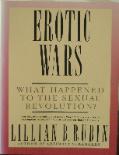What happened to the sexual revolution? To find out, Lillian Rubin traveled to cities and suburbs all around the country, entering the private lives of nearly a thousand Americans between the ages of thirteen and forty-eight. She asked many questions: How do the women and men who made the sexual revolution feel about their past? their present? How have succeeding generations internalized and institutionalized these changes? What changes in sexual attitudes and behavior have taken place over the years? Her findings will surprise many who have read the obituaries of the sexual revolution in newspapers and magazines, or watched the funeral on television.
Unlike most books about sex, this one is about the lives and conflicts of real people. Dr. Rubin is both a psychologist and a sociologist and demonstrates here an extraordinary ability to get people to talk about this most intimate, private aspect of their lives, and to make sense and meaning of what they say.
Among the things we discover with here are:
–Early sexual activity is much less affected by class, gender, and geography than in earlier
generations.
–The sexual revolution, which freed women to say yes, also made it difficult for them to say
no.
–For men, the sexual freedom of women, which has given them so much pleasure, has also
had its price.
–The rules and customs have changed, but sex often is still a meeting of what Drl Rubin calls
intimate adversaries, and the bedroom a place where power struggles between men and women are played out. But the balance of power is shifting.
Ultimately, Erotic Wars offers a resounding note of hope. Dr, Rubin helps us to see that the struggle and anguish of the last three decades have created a society that affords greater potential for joy and satisfaction.
